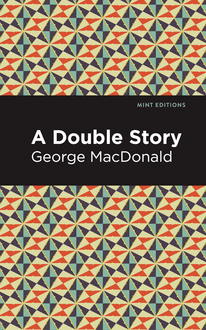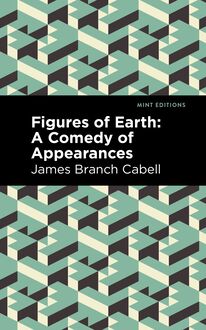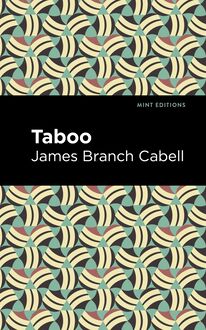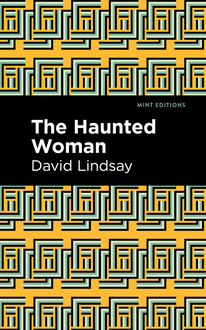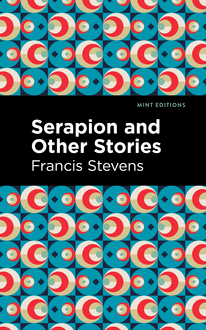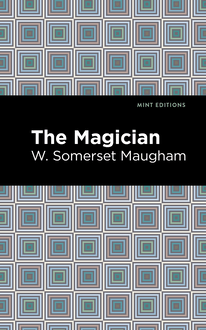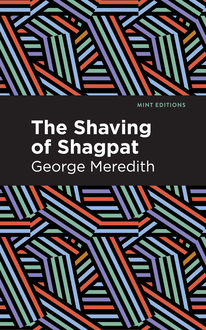-
 Univers
Univers
-
 Ebooks
Ebooks
-
 Livres audio
Livres audio
-
 Presse
Presse
-
 Podcasts
Podcasts
-
 BD
BD
-
 Documents
Documents
-
- Cours
- Révisions
- Ressources pédagogiques
- Sciences de l’éducation
- Manuels scolaires
- Langues
- Travaux de classe
- Annales de BEP
- Etudes supérieures
- Maternelle et primaire
- Fiches de lecture
- Orientation scolaire
- Méthodologie
- Corrigés de devoir
- Annales d’examens et concours
- Annales du bac
- Annales du brevet
- Rapports de stage
La lecture à portée de main
Vous pourrez modifier la taille du texte de cet ouvrage
Découvre YouScribe en t'inscrivant gratuitement
Je m'inscrisDécouvre YouScribe en t'inscrivant gratuitement
Je m'inscrisEn savoir plus
Vous pourrez modifier la taille du texte de cet ouvrage
En savoir plus

Description
Set in a district of the Cape Colony, a British settlement in South Africa, young Allan Quatermain and Marie Marias meet when they share the same tutor. Though they quickly befriend each other, their friendship is frowned upon by Marie’s father, since Marie is Dutch, and Allan is English. Despite her father’s distain, Marie and Allan get closer as they grow. After Allan helps save Marie’s life, their relationship becomes more passionate. In attempts to end their romance, Marie’s father promises her hand in marriage to her cousin, Hernan Pereira. When Marie refuses, her father decides to move their family, participating in the Great Trek of 1836, in which a mass of Dutch South Africans migrated north to escape the influence of colonial Britain. However, as they travel into lands of unpredictable danger, the group runs low on supplies and is threatened by a group of aggressive natives. After Marie writes to Allan, concerned about this danger, he rushes to help save them. But as he follows in the footsteps on their long journey, Allan becomes concerned that he will not make it in time, and wonders if the group would even accept his help if he did.
Marie by H. Rider Haggard has been regarded as a fan favorite of the author’s work, praised for its exciting action and compelling romance. Featuring prominent events in African history, Marie provides a unique perspective and a plot loosely inspired by real events. Written with masterful prose, Marie is heart-wrenching, thrilling, and provides meaningful backstory of Allan Quatermain, the prolific star of many of Haggard’s novels. First published in 1912, the action and romance of Marie has remained to be fresh and engrossing to a modern audience, simultaneously upholding the novelty of classic literature.
This edition of Marie by H. Rider Haggard features an eye-catching new cover design and is printed in a font that is both modern and readable. With these accommodations, Marie caters to a contemporary audience while preserving the original innovation and adventure of H. Rider Haggard’s work.
Sujets
Informations
| Publié par | Mint Editions |
| Date de parution | 09 mars 2021 |
| Nombre de lectures | 1 |
| EAN13 | 9781513278063 |
| Langue | English |
| Poids de l'ouvrage | 2 Mo |
Informations légales : prix de location à la page 0,0500€. Cette information est donnée uniquement à titre indicatif conformément à la législation en vigueur.
Extrait
Marie
H. Rider Haggard
Marie was first published in 1912.
This edition published by Mint Editions 2021.
ISBN 9781513277653 | E-ISBN 9781513278063
Published by Mint Editions®
minteditionbooks .com
Publishing Director: Jennifer Newens
Design & Production: Rachel Lopez Metzger
Project Manager: Micaela Clark
Typesetting: Westchester Publishing Services
C ONTENTS I. A LLAN L EARNS F RENCH II. T HE A TTACK ON M ARAISFONTEIN III. T HE R ESCUE IV. H ERNANDO P EREIRA V. T HE S HOOTING M ATCH VI. T HE P ARTING VII. A LLAN ’ S C ALL VIII. T HE C AMP OF D EATH IX. T HE P ROMISE X. V ROUW P RINSLOO S PEAKS HER M IND XI. T HE S HOT IN T HE K LOOF XII. D INGAAN ’ S B ET XIII. T HE R EHEARSAL XIV. T HE P LAY XV. R ETIEF A SKS A F AVOUR XVI. T HE C OUNCIL XVII. T HE M ARRIAGE XVIII. T HE T REATY XIX. D EPART IN P EACE XX. T HE C OURT - MARTIAL XXI. T HE I NNOCENT B LOOD
I
A LLAN L EARNS F RENCH
A lthough in my old age I, Allan Quatermain, have taken to writing—after a fashion—never yet have I set down a single word of the tale of my first love and of the adventures that are grouped around her beautiful and tragic history. I suppose this is because it has always seemed to me too holy and far-off a matter—as holy and far-off as is that heaven which holds the splendid spirit of Marie Marais. But now, in my age, that which was far-off draws near again; and at night, in the depths between the stars, sometimes I seem to see the opening doors through which I must pass, and leaning earthwards across their threshold, with outstretched arms and dark and dewy eyes, a shadow long forgotten by all save me—the shadow of Marie Marais.
An old man’s dream, doubtless, no more. Still, I will try to set down that history which ended in so great a sacrifice, and one so worthy of record, though I hope that no human eye will read it until I also am forgotten, or, at any rate, have grown dim in the gathering mists of oblivion. And I am glad that I have waited to make this attempt, for it seems to me that only of late have I come to understand and appreciate at its true value the character of her of whom I tell, and the passionate affection which was her bounteous offering to one so utterly unworthy as myself. What have I done, I wonder, that to me should have been decreed the love of two such women as Marie and that of Stella, also now long dead, to whom alone in the world I told all her tale? I remember I feared lest she should take it ill, but this was not so. Indeed, during our brief married days, she thought and talked much of Marie, and some of her last words to me were that she was going to seek her, and that they would wait for me together in the land of love, pure and immortal.
So with Stella’s death all that side of life came to an end for me, since during the long years which stretch between then and now I have never said another tender word to woman. I admit, however, that once, long afterwards, a certain little witch of a Zulu did say tender words to me, and for an hour or so almost turned my head, an art in which she had great skill. This I say because I wish to be quite honest, although it—I mean my head, for there was no heart involved in the matter—came straight again at once. Her name was Mameena, and I have set down her remarkable story elsewhere.
To return. As I have already written in another book, I passed my youth with my old father, a Church of England clergyman, in what is now the Cradock district of the Cape Colony.
Then it was a wild place enough, with a very small white population. Among our few neighbours was a Boer farmer of the name of Henri Marais, who lived about fifteen miles from our station, on a fine farm called Maraisfontein. I say he was a Boer, but, as may be guessed from both his Christian and surname, his origin was Huguenot, his forefather, who was also named Henri Marais—though I think the Marais was spelt rather differently then—having been one of the first of that faith who emigrated to South Africa to escape the cruelties of Louis XIV at the time of the revocation of the Edict of Nantes.
Unlike most Boers of similar descent, these particular Marais—for, of course, there are many other families so called—never forgot their origin. Indeed, from father to son, they kept up some knowledge of the French tongue, and among themselves often spoke it after a fashion. At any rate, it was the habit of Henri Marais, who was excessively religious, to read his chapter of the Bible (which it is, or was, the custom of the Boers to spell out every morning, should their learning allow them to do so), not in the “taal” or patois Dutch, but in good old French. I have the very book from which he used to read now, for, curiously enough, in after years, when all these events had long been gathered to the past, I chanced to buy it among a parcel of other works at the weekly auction of odds and ends on the market square of Maritzburg. I remember that when I opened the great tome, bound over the original leather boards in buckskin, and discovered to whom it had belonged, I burst into tears. There was no doubt about it, for, as was customary in old days, this Bible had sundry fly-leaves sewn up with it for the purpose of the recording of events important to its owner.
The first entries were made by the original Henri Marais, and record how he and his compatriots were driven from France, his father having lost his life in the religious persecutions. After this comes a long list of births, marriages and deaths continued from generation to generation, and amongst them a few notes telling of such matters as the change of the dwelling-places of the family, always in French. Towards the end of the list appears the entry of the birth of the Henri Marais whom I knew, alas! too well, and of his only sister. Then is written his marriage to Marie Labuschagne, also, be it noted, of the Huguenot stock. In the next year follows the birth of Marie Marais, my Marie, and, after a long interval, for no other children were born, the death of her mother. Immediately below appears the following curious passage:
“Le 3 Janvier, 1836. Je quitte ce pays voulant me sauver du maudit gouvernement Britannique comme mes anc ê tres se sont sauv é s de ce diable—Louis XIV.
“A bas les rois et les ministres tyrannique! Vive la libert é !”
Which indicates very clearly the character and the opinions of Henri Marais, and the feeling among the trek-Boers at that time.
Thus the record closes and the story of the Marais ends—that is, so far as the writings in the Bible go, for that branch of the family is now extinct.
Their last chapter I will tell in due course.
T HERE WAS NOTHING REMARKABLE ABOUT my introduction to Marie Marais. I did not rescue her from any attack of a wild beast or pull her out of a raging river in a fashion suited to romance. Indeed, we interchanged our young ideas across a small and extremely massive table, which, in fact, had once done duty as a block for the chopping up of meat. To this hour I can see the hundreds of lines running criss-cross upon its surface, especially those opposite to where I used to sit.
One day, several years after my father had emigrated to the Cape, the Heer Marais arrived at our house in search, I think, of some lost oxen. He was a thin, bearded man with rather wild, dark eyes set close together, and a quick nervous manner, not in the least like that of a Dutch Boer—or so I recall him. My father received him courteously and asked him to stop to dine, which he did.
They talked together in French, a tongue that my father knew well, although he had not used it for years; Dutch he could not, or, rather, would not, speak if he could help it, and Mr. Marais preferred not to talk English. To meet someone who could converse in French delighted him, and although his version of the language was that of two centuries before and my father’s was largely derived from reading, they got on very well together, if not too fast.
At length, after a pause, Mr. Marais, pointing to myself, a small and stubbly-haired youth with a sharp nose, asked my father whether he would like me to be instructed in the French tongue. The answer was that nothing would please him better.
“Although,” he added severely, “to judge by my own experience where Latin and Greek are concerned, I doubt his capacity to learn anything.”
So an arrangement was made that I should go over for two days in each week to Maraisfontein, sleeping there on the intervening night, and acquire a knowledge of the French tongue from a tutor whom Mr. Marais had hired to instruct his daughter in that language and other subjects. I remember that my father agreed to pay a certain proportion of this tutor’s salary, a plan which suited the thrifty Boer very well indeed.
Thither, accordingly, I went in due course, nothing loth, for on the veld between our station and Maraisfontein many pauw and koran—that is, big and small bustards—were to be found, to say nothing of occasional buck, and I was allowed to carry a gun, which even in those days I could use fairly well. So to Maraisfontein I rode on the appointed day, attended by a Hottentot after-rider, a certain Hans, of whom I shall have a good deal to tell. I enjoyed very good sport on the road, arriving at the stead laden with one pauw, two koran, and a little klipspringer buck which I had been lucky enough to shoot as it bounded out of some rocks in front of me.
There was a peach orchard planted round Maraisfontein, which just then was a mass of lovely pink blossom, and as I rode through it slowly, not being sure of my way to the house, a lanky child appeared in front of me, clad in a frock which exactly matched the colour of the peach bloom. I can see her now, her dark hair hanging down her back, and her big, shy eyes staring at me from the shadow of the Dutch “kappie” which she wore. Indeed, she seemed to be all eyes, like a “dikkop” or thick-headed plover; at any rate, I noted little
-
 Univers
Univers
-
 Ebooks
Ebooks
-
 Livres audio
Livres audio
-
 Presse
Presse
-
 Podcasts
Podcasts
-
 BD
BD
-
 Documents
Documents
-
Jeunesse
-
Littérature
-
Ressources professionnelles
-
Santé et bien-être
-
Savoirs
-
Education
-
Loisirs et hobbies
-
Art, musique et cinéma
-
Actualité et débat de société
-
Jeunesse
-
Littérature
-
Ressources professionnelles
-
Santé et bien-être
-
Savoirs
-
Education
-
Loisirs et hobbies
-
Art, musique et cinéma
-
Actualité et débat de société
-
Actualités
-
Lifestyle
-
Presse jeunesse
-
Presse professionnelle
-
Pratique
-
Presse sportive
-
Presse internationale
-
Culture & Médias
-
Action et Aventures
-
Science-fiction et Fantasy
-
Société
-
Jeunesse
-
Littérature
-
Ressources professionnelles
-
Santé et bien-être
-
Savoirs
-
Education
-
Loisirs et hobbies
-
Art, musique et cinéma
-
Actualité et débat de société
- Cours
- Révisions
- Ressources pédagogiques
- Sciences de l’éducation
- Manuels scolaires
- Langues
- Travaux de classe
- Annales de BEP
- Etudes supérieures
- Maternelle et primaire
- Fiches de lecture
- Orientation scolaire
- Méthodologie
- Corrigés de devoir
- Annales d’examens et concours
- Annales du bac
- Annales du brevet
- Rapports de stage
